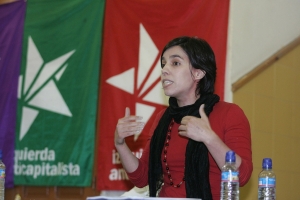The current food model is from top to bottom subject to a high company concentration, being monopolized by a series of transnational agribusiness interests that place their own economic interests above the good of the public and the community.
Today, the food system no longer responds to the nutritional needs of people, nor to sustainable production based on respect for the environment, but is based on a model rooted in a capitalist logic of seeking the maximum profit, optimization of costs and exploitation of the labour force in each of its productive sectors. Common goods such as water, seeds, land, which for centuries have belonged to communities, have been privatized, robbed from the people and converted into exchange currency at the mercy of the highest bidder. (mais…)





